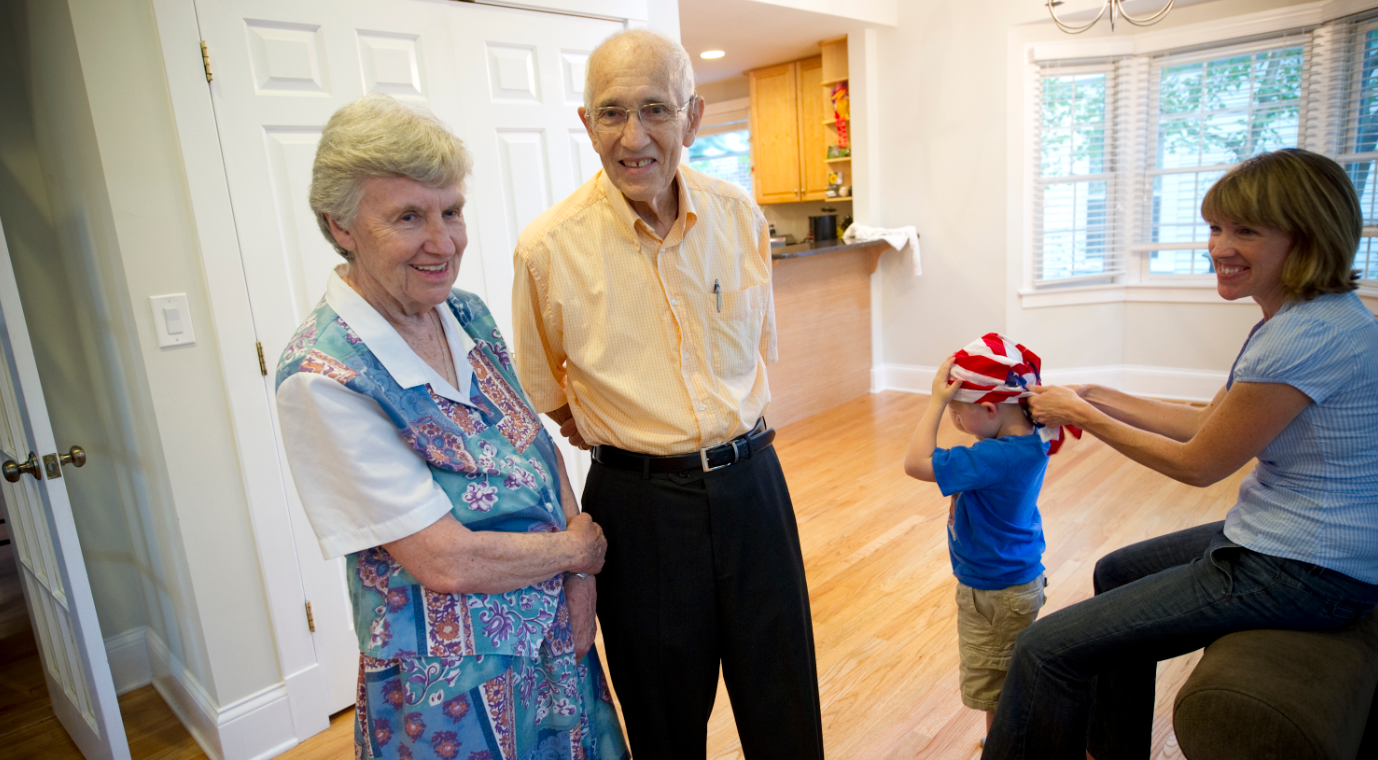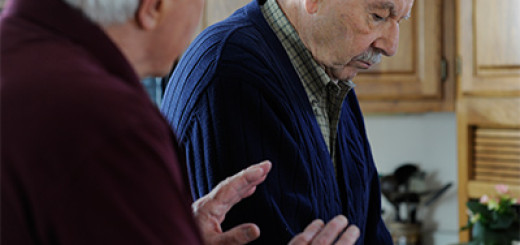Life in a sandwich
 About a third of all Alzheimer’s and dementia patient caregivers are living their lives “sandwiched” between caring for their loved one and raising their own children or grandchildren. With women often having their children later, and with so many young adults moving back into the nest, more families are finding themselves dealing with multi-generational caregiving challenges.
About a third of all Alzheimer’s and dementia patient caregivers are living their lives “sandwiched” between caring for their loved one and raising their own children or grandchildren. With women often having their children later, and with so many young adults moving back into the nest, more families are finding themselves dealing with multi-generational caregiving challenges.
So what can you do if you have children and find yourself as an Alzheimer’s caregiver? Well, take a deep breath, and then get to work building multiple support strategies – for your loved one’s care, your children’s care, and for your own self-care.
Family, friends, neighbors, professionals and your community are all part of a care team. A care team could include:
- Family members, whether living with you or living across the country
- A close friend(s) of the person with Alzheimer’s and/or the caregiver
- Neighbors or others who may help with day-to-day tasks
- Medical professionals, including general practitioner, neurologist, counselor and/or other specialists
- A volunteer from a community organization, church members other social groups
Once you identify your care team, have a conversation with each person who may be willing and able to assist you and tell them what you need. Remember to be specific and state clearly what help is needed now or may be needed in the future.
Plan proactively to prevent caregiver burnout
Remember that the best thing you can do for the person with Alzheimer’s that you are caring for is to take care of yourself. Caregiving is stressful – especially when you are in demand from both aging parents and children. Try to be proactive and find ways to build in time for connecting with your partner and for your own self-care. Book the baby-sitter on a recurring basis or have a relative come over every other Friday night to care for both Dad and the boys.
Caregiver emergency preparedness
Develop contingency plans for your child-care and child transportation needs (school, sports, activities). Plan for the inevitable, “I can’t be at two places at the same time” moment. It will come sooner than later! Do you work? You will need to take time off for appointments, expect it and plan for it. Check employer family care benefits and assistance programs, and evaluate options for job flexibility.
Engage your kids in the caregiving role
When Grandma moves in, explain the disease to your children, in an age appropriate manner. They need to understand that Grandma is going to need your attention. As the disease progresses, be sure to talk to your children about possible behavior changes. Ensure they understand rules relating to your loved one’s safety. If you can, involve your kids in the caregiving process. Grandchildren can visit with their Papa, perhaps reading to him. A young child can often provide comfort and companionship. Older children can help with household chores, errands or provide you with respite. You may be pleasantly surprised to see your kids and your loved one find a new, special relationship that would have otherwise not existed. Have regular family meetings to discuss how everyone is doing, maybe include a geriatric case manager or even a therapist. Sometimes you also need to exclude your loved one from “family” activities, so that your family can reconnect in a mode that doesn’t involve caregiving: have a regular family dinner out or go on the annual family vacation. You can’t let guilt consume you. Respite for you, your marriage and family are all vital to continuing your loved one’s care.
And remember, you aren’t alone. Utilize the ALZConnected forum. Post questions and gain insights from caregivers who have spent time in the sandwich and have already encountered – and perhaps solved – an issue that is now before you. Life in a sandwich can sometimes feel like you are being squeezed”¦but it can also be a nourishing place to be!
Blog written by Alzheimer’s Association Volunteer Diane Blum
Helpful information related to this story
Alzheimer’s explained for kids and teens
Get connected to other caregivers on AlzConnected
Create your own personalized caregiver action plan with AlzNavigator

















